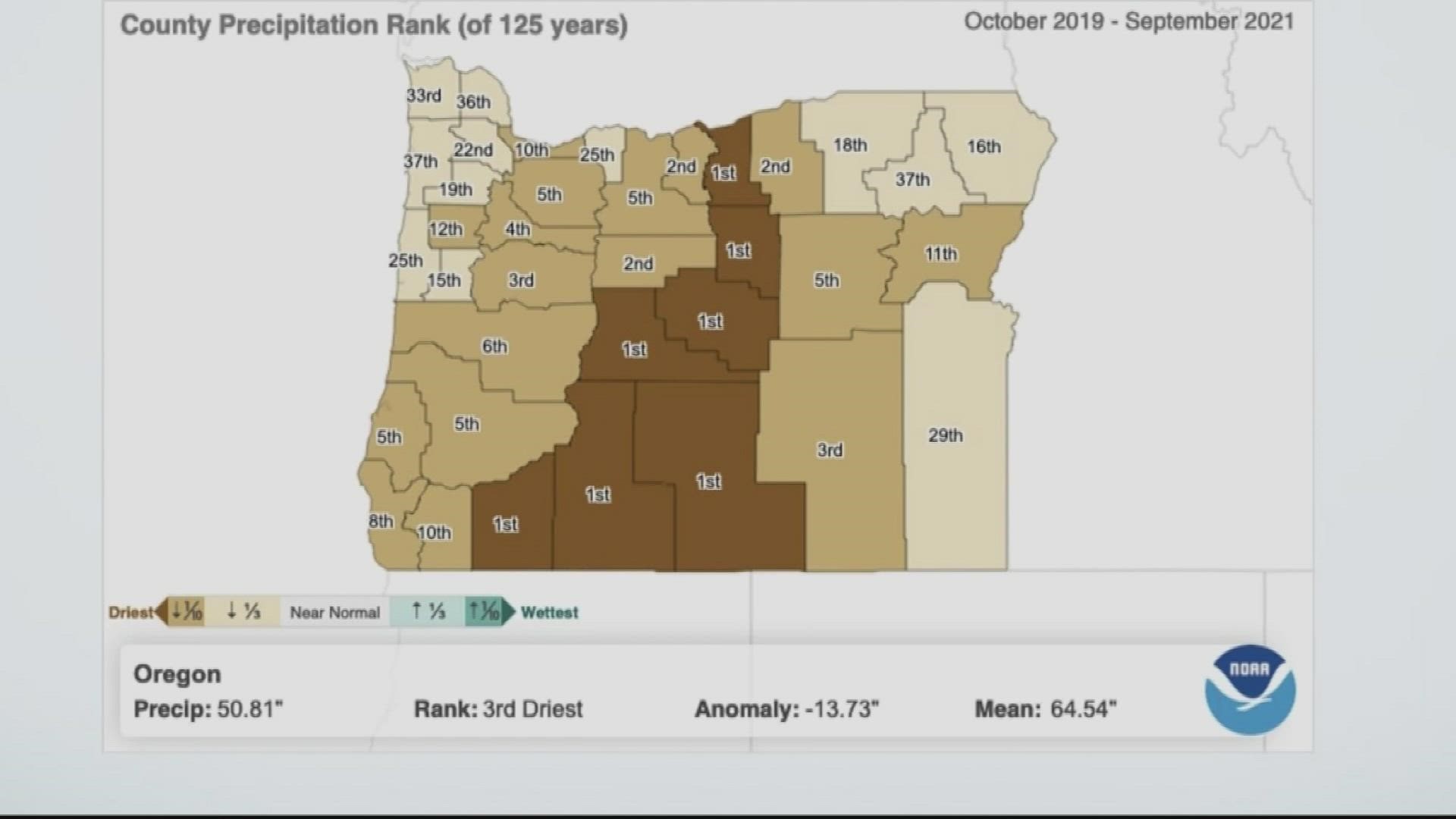PORTLAND, Oregon — Our rainy season has been about average in Portland, but much of Central and Eastern Oregon remains in extreme drought.
"We have seven counties in Oregon that have experienced their lowest precipitation amount on record," said Oregon State Climatologist Larry O’Neil on a media briefing this week discussing the severity of drought across the region.
Despite winter rain in some areas, 74% of the Pacific Northwest is still enduring some degree of drought with 18.6% listed under extreme or exceptional conditions.
“So for the last two water years, which span the period from Oct. 2019 to Sep. 2021, Oregon has experienced its third driest period on record going back to 1895. This year, we’re actually starting off drier than we did at this point last year” O'Neil said.
Reservoir levels in Southern and Eastern Oregon are at historic lows, raising concerns of water supply issues again this summer, impacting everything from recreational use, to farming, to drinking water.
The story is quite different in Portland.
"We have two high quality, high capacity water sources", says Kristin Anderson of the Portland Water Bureau. The city is uniquely positioned to weather ongoing years of less regional rainfall. The Columbia South Shore Well Field in Portland, and our primary source, the Bull Run reservoir on Mt Hood sure up the city’s water supply.
“So when you’re feeling soggy in Portland, you can rest assured there’s place just 25 miles away that’s getting 2-4 times as much precipitation,” Anderson said.
Clackamas county is partially sourced from the Bull Run reservoir, while local precipitation replenishes aquifers beneath the city of Vancouver and parts of Washington County. In short, Portland goes generally unscathed by water shortages elsewhere around the state.
If climate change affects local sources or needs, demands could change which is how past modeling and tracking trends help the water bureau stay one step ahead.
“That adaptive planning is our way of staying nimble in the face of changing conditions," Anderson said. "Our expectation is that we will be very well able to handle the climate changes we see in the foreseeable future."

